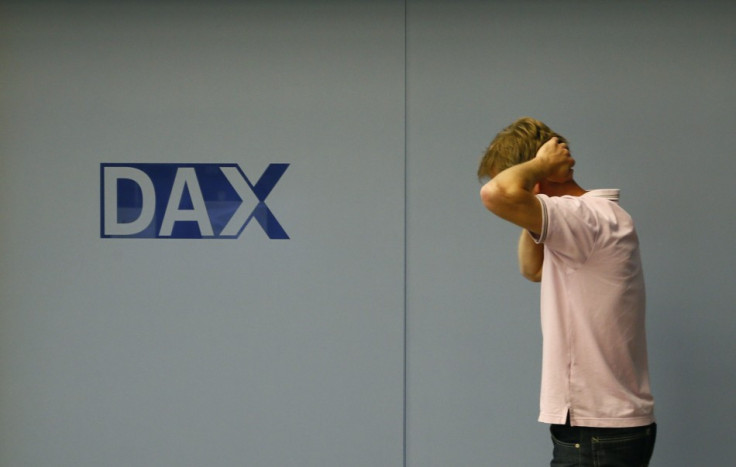European Markets Open Lower After Liquidity Woes Prompt Selling in China

European markets opened lower on Monday after Chinese markets dropped to new 2013 lows, as investors in Asia and Europe remained concerned about China's liquidity condition and the potential cutback in monetary stimulus by the US Federal Reserve later in 2013.
The Stoxx Europe 600 index opened 0.3% lower to 279.53.
Britain's FTSE 100 and Germany DAX were down 0.1%.
France's CAC 40 was down 0.2%.
Italy's FTSE MIB opened 0.9% lower while Spain's IBEX opened 0.3% lower.
The markets had closed lower on 21 June on Fed concerns. The Fed's $85bn a month bond-buying programme has stimulated the US economy and the markets the world over for a while now.
European investors will be tracking the Ifo German Business Climate Index during the day, which rates the current German business climate and measures expectations for the next six months in Europe's leading economy. Germany heads to the polls this September, with Chancellor Angela Merkel's conservative alliance fighting the centre-right Chrisitan Democratic party.
Over the weekend, Basel, Switzerland-based Bank for International Settlements, called on central banks to exit their bond buying programmes and stop trying to stimulate a global economic recovery. BIS said in its annual report that central bank money has only bought time, rather than helping a recovery.
Elsewhere in Europe, a court in Italy is expected to rule whether former Italian prime minister Silvio Berlusconi paid for sex with an underage prostitute and abused his office to cover it up.
In Asia, the Shanghai Composite index finished 5.3% lower at the end of day's trade. The Japanese Nikkei ended 1.26% lower while South Korea's Kospi finished 1.31% lower. Australia's S&P/ASX closed 1.47% lower.
Earlier in Asia, equities dropped to new nine-and-a-half month lows after Chinese markets plunged the sharpest so far this year following concerns over the liquidity crunch in China and fears that the US Federal Reserve could start pruning its massive bond buys later this year
The markets were influenced by the reluctance of The People's Bank of China to infuse funds into money markets as Chinese interbank rates remain above the 6% level.
However, the central bank did try to pacify the markets by stating that bank liquidity remained at reasonable levels and that it had asked Chinese banks to strengthen liquidity management, to ease the liquidity crunch in the world's second largest economy.
On Wall Street, indices were battered by Federal Reserve chief Ben Bernanke's comments and ended lower during the week ending 21 June. The Fed's $85bn a month bond-buying programme has stimulated the US economy and the markets the world over for a while now.
The Dow Jones Industrial Average finished the week 1.8% lower to 14,799.40.The S&P 500 index closed 2.11% lower to 1,592.43 in the five days of trading ending 21 June while the Nasdaq ended 1.94% lower to 3,357.25 during the week.
© Copyright IBTimes 2025. All rights reserved.






















